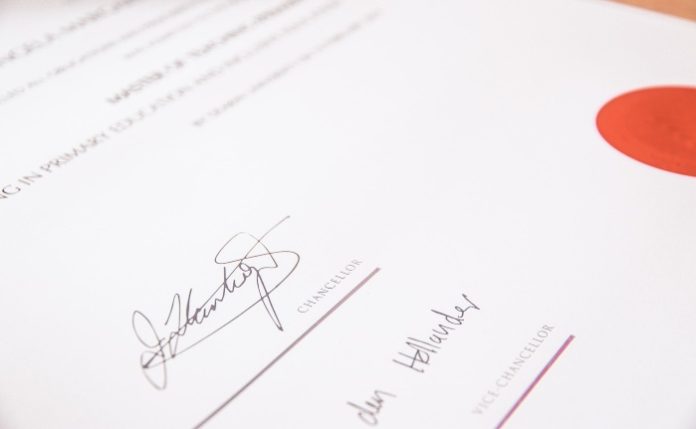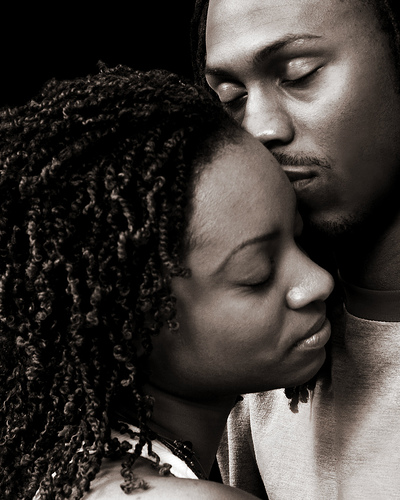A marriage certificate is a very crucial document for married couples. It is a proof about the marital status of Country’s citizen. Moreover, it is considered as a vital documentary proof for passport, insurance claim, child custody, etc. Learn about E Governance Services here.
In the year of 2006, The Supreme Court of India made it compulsory for all the citizens to register for the marriage. Now, it is mandatory for all Indian citizens to register their marriage. Though this supreme order does not make traditional marriage an illegal one but now, it is considered as a compulsory.
The entire procedure for obtaining a marriage certificate is easy. Here, in this article, we have described everything you need to know about the marriage certificate as per the government’s rules.
What is the Process to Obtain A Marriage Certificate?
In order to get the marriage certificate, both the married persons are required to fill an application form separately and submit it to the marriage registrar office. Following documents will be submitted along with it:
- Wedding invitation card
- Pictures of the wedding ceremony
- Age proof and address proof of both applicants
- A proper affidavit as a proof to show the applicants are married under the Hindu Marriage Act 1955
- A document is needed to give as a proof for the fit mental condition of couples
- A proof of non-relationship between the coupled within the degree of prohibition
The above mentioned documents must be certainly attested by a Gazetted Officer. The applicants are required to fill a fee to the cashier at the sub-registrar’s office along with the documents mentioned above. The officials will then issue the marriage certificate and the date of marriage registration after checking the submitted documents.
Conditions that Must Fulfil to Get the Marriage Certificate
The applicants must remember that only those marriages will be considered as eligible for getting a marriage certificate who fulfils the following conditions:
- The marriage should be between two Hindus only.
- During the time of wedding, both the applicants should not have a spouse.
- None of the party should be suffering from any kind of mental disorder.
- Both of the parties should be fit for marriage and should not be suffering from any disease and procreation of children.
- The age of the bride should be 18 or more than that and the age of the bridegroom should be 21 or more than that.
If in a situation, a marriage is considered null, then the concerned applicants may get the punishment. Take a glance at the degree of prohibited marriages under Hindu Marriage Act
If one of the spouse is lineal ascendant to other.
If one of the couple was the husband or wide of lineal ascendant or descendant of the other
If both couples have a relation like brother and sister, uncle and niece, children of brother or sister or of two brothers or of two sisters.
Birth certificates and unregistered births
A birth certificate should be the first priority after having a baby. A child’s identity must be registered with the National Population Register of the country. The birth certificate in India has been made compulsory documents for many purposes such as getting admission or employment. In this case, it becomes important to know the details associated with the birth certificates, India.
The authorities responsible for Birth Certificate in India:
The process of registration of Birth Certificate in India is not a central responsibility anymore. The registration process is taken care of by the states and Union Territories, handled by the chief registrars in the following states. However, the overall data is compiled and managed at a central level by the Registrar General. It is important to allow only one entry in the National Population Register so that the data remain unique.
At the basic level, the whole process is carried out by the sub- registrars.
Birth certificate, India for people living in abroad:
- The Indian missions situated in abroad can be called, for registering a birth certificate, by people living in abroad. There is no stipulated time for this service.
- The citizenship act, in section 4 allows the registration of birth from abroad even after one year. This is also been officially stated by the hoke ministry.
Unregistered births and deaths:
According to a statement released by a think tank called Brookings India, it has been noted that all the births and deaths are not currently registered in India. This may be a result of poverty and poor infrastructure in various districts.
The most affected chunk of the population by the unregistered birth are the students/children who haven’t passed 10th or 12th exams yet, as they lack even the mark sheets as a proof of date of birth. They have an only birth certificate as their hope for their nationality and identity.
Dipa Sinha, an assistant professor in the BR AMBEDKAR UNIVERSITY explained that even after the Right to Education, that states everyone has right to education, no documents required, the birth certificate requirement by various educational institutions becomes a problem.
Many children suffer as their parents are unable to provide with a birth certificate, later in their life.
Many people express genuine concern over linking the fundamental existence of a person to a piece of paper.
Some facts:
- 84.9% of all birth has been registered in 2017. The registered deaths were 79.6%. Notable there has been a gap between the total population and the registered population of India.
- Birth certificate in India is the only official tracker of the population, maintaining all the records of birth.
- According to a report presented by UNICEF in the year 2019, India is one of the five democratic republic nations where the unregistered cases of birth are about 166 million. These statistics are not very appealing.
- In the last five years, there are 24 million estimated children below the age of 5 whose birth have not been registered, said by UNICEF. This also implies they lack the only proof of their existence ‘birth certificate’.
How to issue a death certificate in India?
A death certificate is an official record which specifies the death of an individual. It is a legal document that holds information about the time, date, cause of death, and other details of the deceased person. The death certificate is issued to the closest relative of the deceased person and it is compulsory to register a death within 21 days of the death. As per the Provision of Registration of Death, 1961, it is compulsory to register all deaths under the State Government.
The process of issuing a death certificate is easy if all the steps are followed correctly.
How to apply online?
To make the process much easier, an online system is available to register deaths in India. The protocol to apply online for death certificate registration is as follows –
- The applicant must visit the official website of Municipal Corporation and log in to the web portal.
- Next, select the applicant should select their district. For example, for people applying from Delhi, they need to select their region such as North Delhi, South Delhi etc.
- Once the area/district has been selected, click on the ‘registration of births and deaths’ option.
- Select the option of ‘registration by the empanelled institutions’ available on the webpage.
- The application form for death registration will appear on the screen. The applicant must fill in all the details correctly.
- Once completed, click on the ‘submit’ option.
- An online payment will have to be made of Rs.21 by the applicant once the form is filled. The payment can be made online via net banking, debit or credit cards.
- Finally, download the online death certificate.
However, some people still do not have internet access in India and so, the online process is of no use to them. In such a situation, applicants can always follow the offline process for issuing a death certificate.
What is the offline process for death certificate registration?
In order to issue a death certificate by the offline process, one must follow these steps –
- The applicant must fill the application form for death registration that can either be downloaded online (if the person has access to the internet), or it is available at the concerned local authorities.
- The form should be submitted along with important documents such as the Birth Certificate of the deceased person, Aadhar Card, affidavit specifying the place, date and time of death etc.
- The registrar responsible for the registration of deaths of the applicant’s state/district, will have to verify all the documents and the application form.
- A certain amount of fee will have to be submitted to the operator who will then, give an application and transaction ID to the applicant.
- Once the application process is completed, the applicant will receive a confirmation on their registered mobile number.
- After approximately 5 days of application submission, the applicant shall receive the death certificate on complete verification.
Some facts –
- In 2001, the level of registration countrywide, was approximately 52%. By the year 2010, this number increased to almost 70%.
- The infant mortality rate in the rural areas was comparatively less than in urban areas.
- 2.7 million Of deaths were registered in 1981, and in 2010 the number increased to 5.7 million which is almost double the number. This shows an improvement in the number of deaths registered in India.
Photo by Lewis Keegan – Skillscouter.com on Unsplash
Readers Might Also Like:
 Tips To Help You Monetize Your Site or Blog
Tips To Help You Monetize Your Site or Blog
 Natural Hairstyles If You’re Looking To Switch your Style Up
Natural Hairstyles If You’re Looking To Switch your Style Up
It’s Not You Ladies – The Truth About Men, Mid-Twenties & Relationships
 How to Save Money on Cable: 7 Effective Ways
How to Save Money on Cable: 7 Effective Ways


